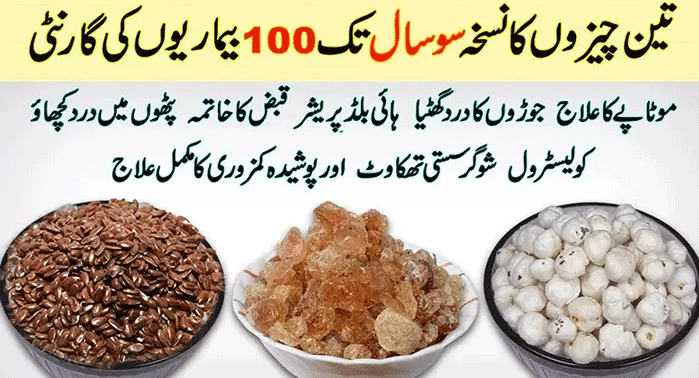
Cholesterol is a word that often gets thrown around when talking about heart health, but what exactly is cholesterol, and why does it matter? Cholesterol is a type of fat-like substance present in your blood. It is important for your body to make hormones, vitamin D, and bile acids that help you digest food. But if you have too much of it, it can be bad for you. While our bodies naturally produce cholesterol, it is also found in certain foods we eat.
It can cause fatty deposits to build up in your arteries, which can narrow them and reduce blood flow to your heart and brain. This can lead to heart disease and stroke, which are among the leading causes of death in Pakistan. There are three main types of cholesterol: LDL, HDL, and VLDL. Let’s see what they are and how they affect your health.
How to Increase HDL Naturally (Urdu)
Types of Cholesterol:
Cholesterol can be categorized into two types: HDL (high-density lipoprotein) cholesterol and LDL (low-density lipoprotein) cholesterol.
HDL Cholesterol:
HDL cholesterol is often referred to as “good” cholesterol because it helps remove LDL cholesterol from the bloodstream, thus reducing the risk of heart disease.
LDL Cholesterol:
On the other hand, LDL cholesterol is known as “bad” cholesterol because it can build up in the arteries, leading to blockages and an increased risk of heart problems.
Cholesterol Test Name in Pakistan:
To assess your cholesterol levels, you can undergo a blood test called a lipid profile or a cholesterol panel. This test measures your total cholesterol, HDL cholesterol, LDL cholesterol, and triglycerides (another type of fat in the blood). It is a simple and routine procedure that helps evaluate your heart health and determine if any lifestyle changes or medical interventions are necessary.
Increasing HDL Cholesterol:
Boosting your HDL cholesterol levels is a positive step toward maintaining a healthy heart. Here are some proven strategies you can adopt:
Regular Exercise: Engage in physical activities like brisk walking, cycling, or swimming. Exercise raises HDL cholesterol levels and improves overall cardiovascular fitness.
Consume Healthy Fats: Incorporate foods rich in monounsaturated fats, such as olive oil, avocados, and nuts, into your diet. These fats can increase HDL cholesterol while lowering LDL cholesterol.
Eat Omega-3 Fatty Acids: Include fatty fish like salmon, mackerel, and sardines in your meals. These fish are excellent sources of omega-3 fatty acids, which can raise HDL cholesterol levels.
Limit Refined Carbohydrates and Sugars: Minimize your intake of sugary drinks, processed snacks, and foods made with refined flour. These can lower HDL cholesterol and raise triglyceride levels.
Decreasing LDL Cholesterol:
Lowering LDL cholesterol is crucial for reducing the risk of heart disease. Here are some effective strategies:
Adopt a Heart-Healthy Diet: Focus on consuming foods rich in soluble fiber, such as oats, fruits, vegetables, and legumes. Some foods have a type of fiber that can dissolve in water. This fiber can help lower the bad cholesterol in your blood.
Limit Saturated and Trans Fats: Reduce your intake of foods high in saturated fats like fatty meats, full-fat dairy products, and fried foods. Also, avoid trans fats found in processed snacks and baked goods, as they raise LDL cholesterol.
Choose Healthier Cooking Methods: When you cook your food, you can use different methods. Some methods are healthier than others. For example, you can bake, grill, steam, or cook quickly in a little oil. These methods are better than frying your food in a lot of oil.
Exercise Regularly: Engaging in moderate-intensity aerobic activities for at least 150 minutes per week can lower LDL cholesterol levels.
In conclusion, understanding cholesterol is essential for maintaining a healthy heart. By keeping an eye on your cholesterol levels, adopting a balanced diet, engaging in regular exercise, and making lifestyle modifications, you can increase good cholesterol (HDL) while reducing bad cholesterol (LDL). Taking these steps toward a heart-healthy lifestyle will contribute to your overall well-being and help protect against heart disease, ensuring a happier, healthier life in Pakistan.
Some FAQs
Are all cholesterol-rich foods bad for me?
Not all cholesterol-rich foods are bad for you. While some foods, like red meat and full-fat dairy products, can raise LDL cholesterol levels, there are also healthy sources of cholesterol like eggs, which do not have a large impact on blood cholesterol levels for most people.
Can losing weight improve my cholesterol levels?
Losing weight, especially if you are overweight, can help improve your cholesterol levels. Losing as little as 5-10% of your body weight can lead to reductions in LDL cholesterol and triglyceride levels.





